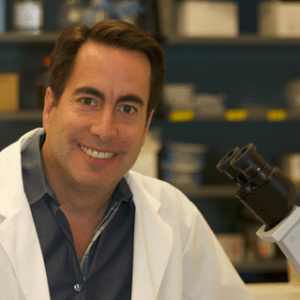September’s Immunologist of the Month features Professor Juan Carlos Zúñiga-Pflücker, a Senior Scientist based at the Sunnybrook Research Institute in Toronto, Canada. In addition to his research site at Sunnybrook, Prof Zúñiga-Pflücker is also the Chair of the Department of Immunology at the University of Toronto and is a Canada Research Chair in developmental immunology. Prof Zúñiga-Pflücker is one of the leading researchers in developmental immunology and haematopoietic stem cells. His lab investigates T cell development as the cells enter the thymus, as well as the molecular signals present during lymphocyte differentiation. Most notably, the Zúñiga-Pflücker lab has developed the OP9-DL system, a novel coculture system of the OP9 cell line to induce differentiation of embryonic stem cells into haematopoietic progenitors, which subsequently develop into lymphocytes. In addition to developmental immunology research, Prof Zúñiga-Pflücker is an active member of the CanCURE (Canadian HIV Cure Enterprise) research consortium.
Prof Zúñiga-Pflücker spoke to Immunopaedia about his interest in T cell development and how his research is shaping our knowledge of key mechanisms of developmental biology.
Name: Juan Carlos Zúñiga-Pflücker
Position: Professor and Chair, Department of Immunology, University of Toronto
Senior Scientist, Sunnybrook Research Institute, Toronto, Canada
Research Interest: My research interests are on the development of the immune system, with a particular focus on thymus biology and the development of T cells from stem cells.
Your lab focuses on the development of T cells. What aspects is your lab currently investigating?: My lab’s work T cells is focused on understanding how Notch signals instruct T cell lineage differentiation from hematopoietic stem and progenitor cells. We are also developing new ways of instructing T cell developmental cues onto stem cells in order to precisely control the differentiation of stem cells into T cells.
How is the joint approach of immunology and developmental biology key to your research?: My interests have always been on elucidating developmental processes, and T cell development represents a fascinating system to uncover how important developmental biology principles and mechanisms are at play. The Notch pathway, a classic developmental signaling cascade, which is absolutely necessary for mediating T cell commitment and differentiation, provides a beautiful example of the interface between developmental biology and immunology.
What is one interesting discovery in your field of immunology?: I feel that the recent discovery of innate lymphoid cells (ILCs) has changed the way we think about the underpinnings of the adaptive immune system, its evolution and regulation.
How does your research affect our knowledge of health and disease?: Our work on T cell development has several implications for translational applications. In particular, our ability to make T cells from human pluripotent stem cells gives us a way to model how different genetic alterations seen in primary immunodeficiencies affect T cell development. Also, we can generate progenitor and/or mature T cells from hematopoietic stem cells, which potentially can be used in different therapeutic applications.
I am always interested in hearing from potential postdocs that are interested to work on answering unresolved questions in the field of T cell development.
Interview by Rebecca Ng











